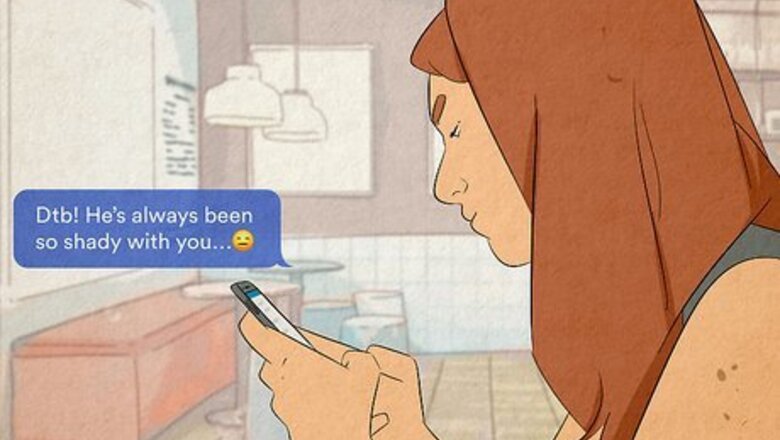
views
- “Dtb” is an acronym for “Don’t text back.” If someone’s blowing up your phone and you want them to leave you alone, you could send “dtb.”
- “Dtb” also stands for “Don’t trust b*tches” or “Don’t trust boys,” depending on your preference. Keep in mind that “Don’t trust b*tches” is considered misogynistic.
- In Spanish-speaking countries like Puerto Rico, “dtb” is used as an acronym for “Dios te bendiga,” or “God bless you,” and is often sent to friends and family.
What does it mean when someone says “Dtb”?
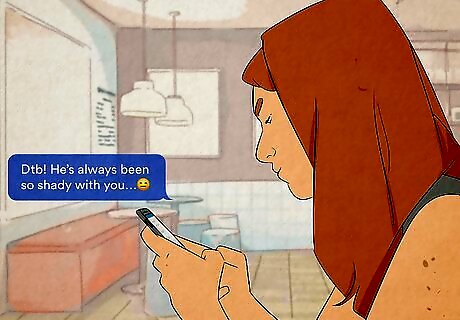
“Dtb” can stand for “Don’t trust b*tches” or “Don’t trust boys.” Popularized by rapper Julius Dubose, also known as Boogie wit da Hoodie’s 2020 song, “DTB 4 Life,” “dtb” became a viral misogynistic anthem on TikTok for men dissatisfied with the women in their romantic lives. Women or those attracted to men quickly switched “dtb” around to mean “Don’t trust boys” as a way to retaliate and get in on the action. “Dtb, man. She’s not worth your time.” “Dtb! He’s always been so shady with you…????”
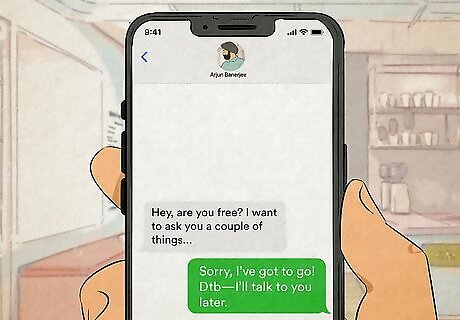
“Dtb” is an acronym for “Don’t text back.” “Dtb” is a popular way to let someone know that you don’t want to talk to them anymore or are busy and can’t reply. Whether you’re running out the door and can't continue the conversation, or you're seriously fuming and don’t want to hear from them again, “dtb” has your back. “I’m so over this. Dtb ????” “Sorry, I’ve got to go! Dtb—I’ll talk to you later.”
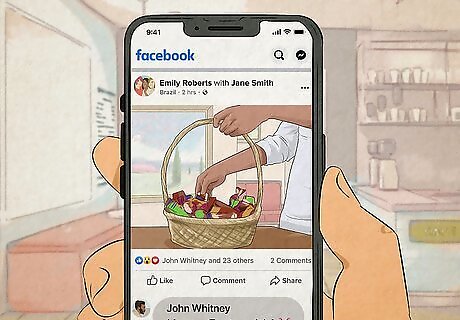
“Dtb” or “Dios te bendiga” can mean “God bless you.” Spanish-speaking countries like Puerto Rico often use “dtb” as an acronym for “Dios te bendiga” or “God bless you.” Perfect for use on social media, a quick comment of “dtb” to your loved ones is a great way to let them know you’re thinking of them with well wishes. “Aw, dtb auntie Linda. Missing you! ❤️” “Happy Easter, dtb! ???? ????”
When and How to Use “Dtb”
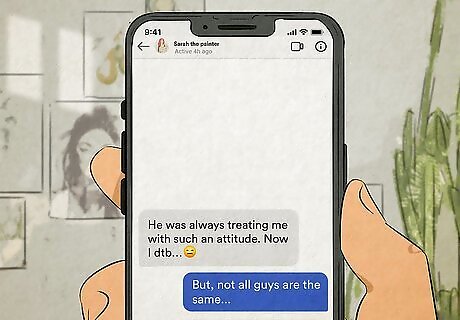
Say “dtb” to express your distrust for an ex or past fling. If you’re feeling jilted by an ex or someone who made your heart burn with a passion…until it turned into a dumpster fire, you can use “dtb” as a way to diss them. Essentially, “Don’t trust b*tches,” or “Don’t trust boys” is another way of saying your ex sucks—just consider swapping “Don’t trust b*tches” ("dtb") for “Don’t trust women, (“dtw”) for a less misogynistic spin. “He was always treating me with such an attitude. Now I dtb… ????” “Dude, she totally broke my heart. Dtb! ????”
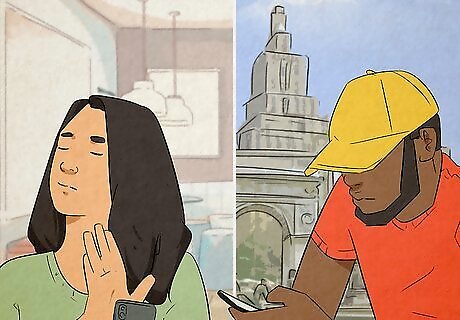
Use “dtb” in place of “leave me alone” or “I can’t reply.” Whether someone just crossed a boundary or you’re heading to an area without cell service, sending “dtb” is a quick way to let people know you don’t want them to reach you. Just be sure to give some context, and let the person you’re speaking with (if you plan on texting them back) know you’ll get in touch when you can. “Ah, dtb. I won’t have service at the gym, so I’ll text you when I get home! ????” “We’re done—dtb.”
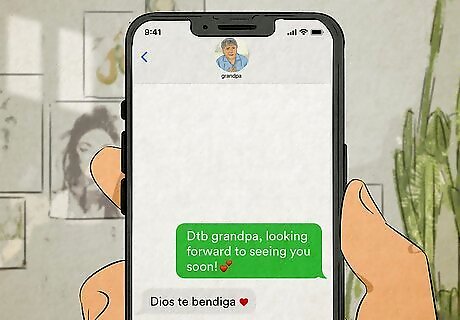
Send “dtb” to send blessings to a loved one. A sweet “Dios te bendiga,” or “God bless you,” is the perfect way to let your Spanish-speaking loved ones know you’re thinking of them and wishing them blessings from above! Whether you saw your auntie’s picture on Instagram or wanted to say something short and sweet to your family friend on Facebook, “dtb” is a no-brainer. “Dtb grandpa, looking forward to seeing you soon! ????” “You guys look great! Everyone sends their love, dtb!”
Replying to “Dtb”
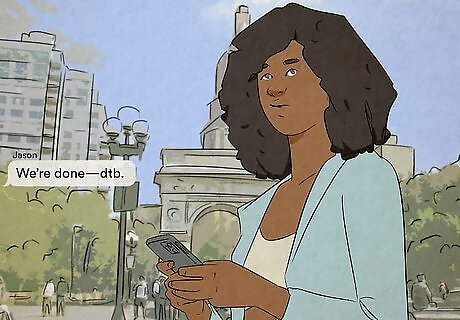
If someone sent you “dtb,” don’t reply. Hey, don’t jump to conclusions just yet. Sometimes, people use “dtb” like, “I’m busy right now,” rather than “Leave me alone.” That said if you were sent “dtb,” the safest thing to do is not to reply—if they want to talk later, they’ll let you know when they’re available. If you were in a fight with the person who sent you “dtb,” they likely don’t want to talk to you right now or want to break off the relationship you shared. Remember, you deserve to be treated with respect, so try not to let it get to you—on to better things! Distract yourself while you wait for them to get back in touch by watching a movie, reading a book, or going for a walk outside. This will help to get your mind off things and improve your mental health.
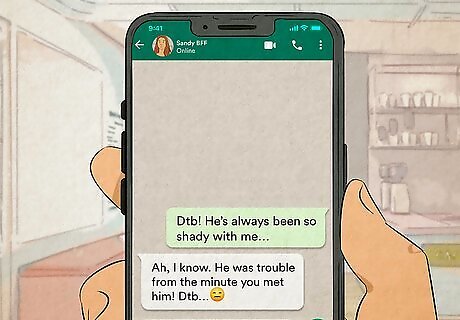
Send “dtb” to reply to a conversation about you or a friend’s ex. Ugh, we’ve all been there. Whether a romantic connection didn’t work out the way we planned, or your friend just got their heart broken, replying with “dtb” (“Don’t trust b*tches” or “Don’t trust boys”) might sum up how you’re feeling about the situation. “Ah, I know. He was trouble from the minute you met him! Dtb… ????” “Thanks for letting me vent. I thought I could trust her, but dtb ????”
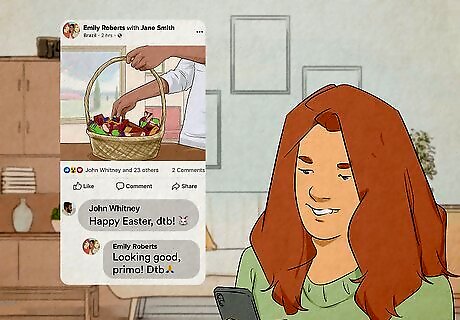
Reply “dtb” to a loved one’s comment or post on social media. You’ve liked your loved one’s post, but what should you comment? “Dtb,” of course! If you’re looking for a quick way to reply to a Spanish-speaking loved one’s post and send blessings their way, “Dios te bendiga” or “god bless you” couldn’t be easier. “Thanks so much, Aunt Mary! Dtb to you and the family! ????” “Looking good, primo! Dtb ????”




















Comments
0 comment